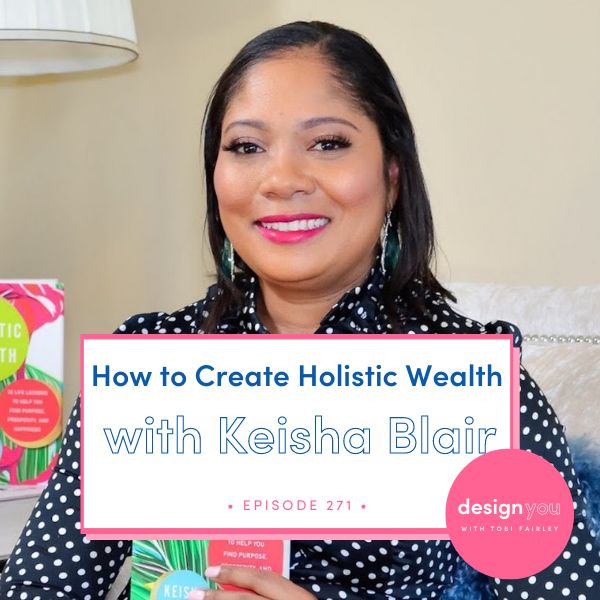
Are you ready to talk about money? Today, I’m joined by Keisha Blair, the award-winning, international bestselling author of the newly expanded and updated Holistic Wealth: 36 Life Lessons to Help You Recover from Disruption, Find Your Life Purpose, and Achieve Financial Freedom.
Keisha has changed lives through her work and I’m super excited to have her on the podcast. She’s here to help us dip into what our financial identity is, and what we can do to become holistically wealthy, not just financially wealthy, so we can feel good, use the money that we have, and truly experience life and the things that matter most.
Tune in this week to discover what it means to cultivate Holistic Wealth. Keisha is discussing how a sabbatical after a tragedy in her life was the most productive and impactful thing she’d ever done, why we all have so much more to give when we tap into our intuition, and how to start embracing your personal financial identity as you work towards an all-encompassing Holistic Wealth.
Fairley Fancy is officially open for business! Click here to check it out. Follow Fairley Fancy on TikTok and Instagram to follow along with the launch, stay up to date with details of giveaways, and all the good stuff.
If you’re an interior designer or creative looking to up-level your business, I have something for you. It’s my Build a Better Business Guide. Burnout, undercharging and the feast and famine cycle are rampant in the design industry but there’s a better way to run your business. Click here to get my manifesto and guide that will have you on your way to a business with more ease, more joy, and more money.





